Your basket is currently empty!
Written by
Magnetic Filters: Magnetic cleaner for boiler servicing

Magnetic Filters or Cleaners for Boilers – Are They Worth It?
Boiler systems are one of those products that we don’t really think about until it goes wrong. But with each day of use, it’s likely that your heating system is slowly corroding.
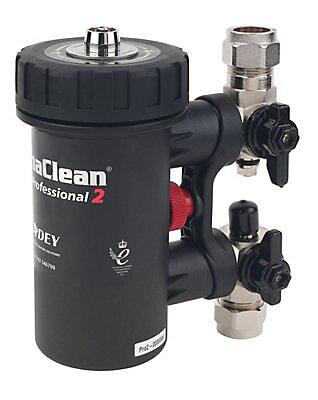
That then means that there will come a point when your boiler stops working, and that will cause a whole heap of problems for you and your family’s ability to keep warm and have hot water.
A magnetic cleaner or system filter, as it’s often known can make a big difference to the life of your boiler and boiler efficiency. That alone should mean that they’re worth knowing a little more about, and there are other benefits too.
In this guide, we’re going to provide you with everything that you need to know about magnetic filters so that your boiler can get on with its job and you can stop worrying about potential breakdowns.
Get the best quotes for boiler installation online in under 1 minute now
New Gas Boilers with FREE Hive Mini Smart Thermostat!
£0 Deposit & 0% Interest Finance available
How does a magnetic filter work?
When an appliance or system uses water, then a build-up of rust can be a problem.
While it’s easy to see the issue in your kettle, it’s harder to see what’s happening inside the boiler or in central heating systems. But, unless you take action, the debris will build up until it creates a problem that does catch your attention.
If you are thinking off fitting a filter to an old system we strongly suggest a power flush first which will cost but will be worth it in the long term.
Rust, the big issue for central heating
The metal components in your boiler and central heating system are manufactured from three different magnetic and non-magnetic materials:
1. Copper, which is generally used for pipes in the heating system. That’s because it’s very malleable as well as being a durable and lightweight non-magnetic material.
2. Aluminium is often found within boilers, and that’s because it’s both a good conductor and it’s a cheap material for the manufacturing process. It’s also non-magnetic.
3. Steel is the main cause of the sludge that develops within the heating system. That’s because it corrodes very quickly when it comes into contact with either water or oxygen.
Magnetic filters work by attracting the steel sludge. As the steel rust particles and debris flows through the central heating system, it’s caught by the filter leaving the clean water to carry on through to the boiler.
If you’re thinking of getting a retrofit magnetic cleaner, why not consider a new boiler, we have all the best combi boilers, best system boilers, and conventional boilers in one place for you to compate quotes now.
Get the best quotes for boiler installation online in under 1 minute now
New Gas Boilers with FREE Hive Mini Smart Thermostat!
£0 Deposit & 0% Interest Finance available
What are the signs of sludge in the heating system?
Here are our top ten signs that sludge could be an issue within your central heating system
1. Patchy areas of warmth and cold spots across the radiators
2. The radiators are cool to the touch at the bottom and middle.
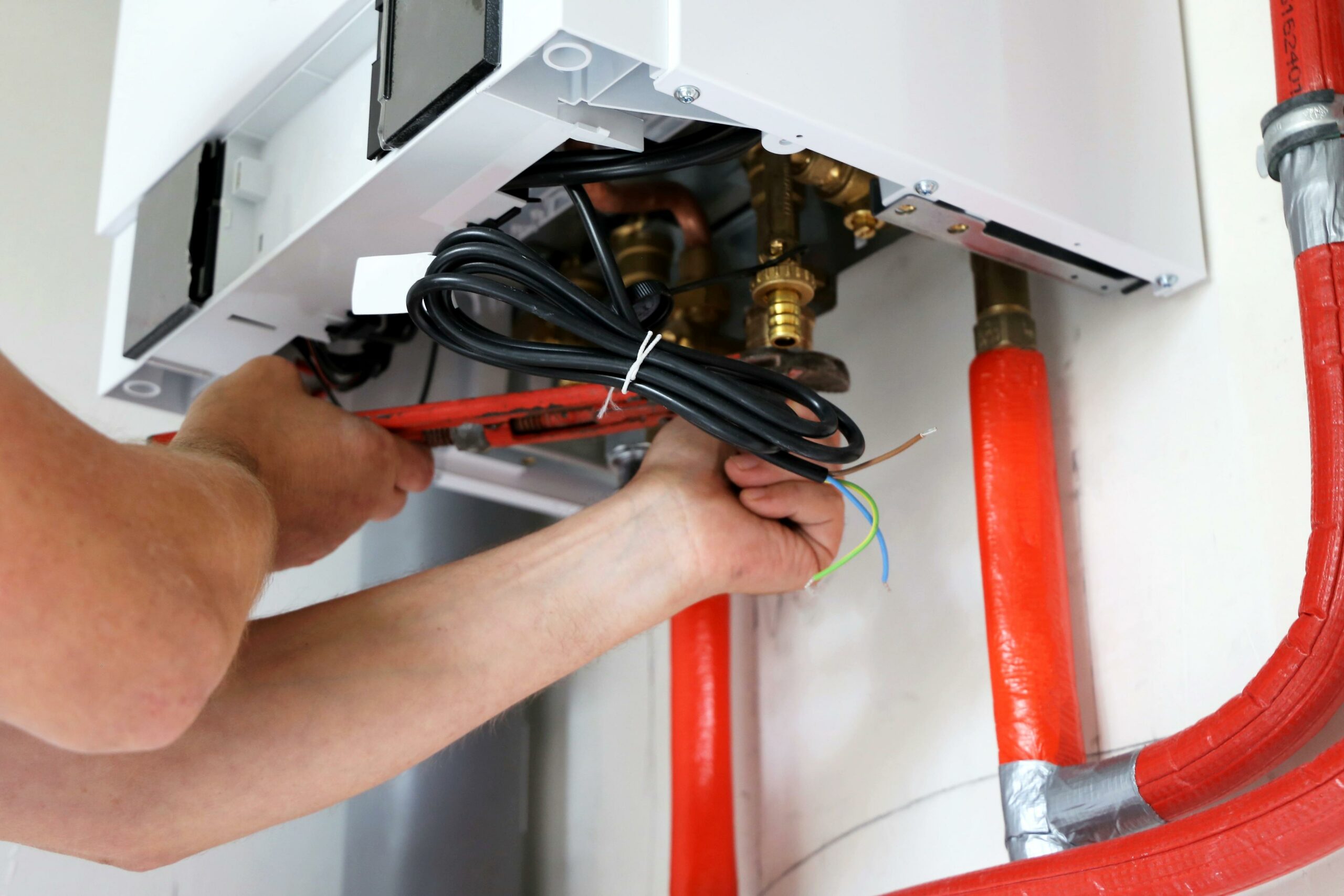
3. Radiators not heating up at all
4. Needing to bleed the radiators regularly
5. The boiler system has become very noisy
6. Even with the radiator valve turned to maximum, they don’t increase in temperature.
7. An overheating pump because it’s trying to cope with a high level of backpressure.
8. A leaking boiler pump caused by a blown seal in the back passage.
9. Hot pipes leading to the radiators, but they’re still cold to the touch.
10. When parts in the heating system are replaced, they’re blocked with dirt, and the valves keep on breaking.
Are magnetic filters really needed?
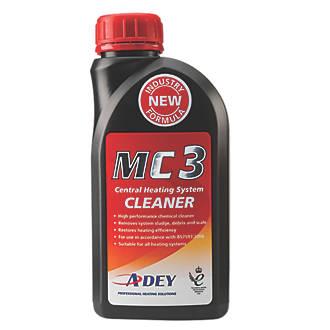
Sometimes it can feel that there are more demands on our hard-earned cash than there is money coming in. So if you’re going to invest in a magnetic filter for your heating system, then you need to know that it’s going to be a worthwhile financial investment.
We know that there are many benefits to fitting magnetic filters, but here are five to get you started. All boiler types can be fitted with with magnetic filters too.
Get the best quotes for boiler installation online in under 1 minute now
New Gas Boilers with FREE Hive Mini Smart Thermostat!
£0 Deposit & 0% Interest Finance available
1. More efficient heating system meaning lower energy bills
When your boiler is having to work harder to force the hot water through the pipes and radiators, then it’s going to cost you more in energy bills. The magnetic filter allows the water to flow through the system without the hindrance of sludge making your boiler more efficient.
2. Reduced carbon footprint
If you’re using less energy but still getting the hot water and heating that you need, your carbon footprint will be reduced. Boiler filters allow you to heat your home with a more environmentally sensitive approach.
3. Reduced risk of expensive repairs to the central heating
There’s only so long that your boiler and central heating system can keep on working when the pipes and radiators are full of sludge. There will come the point when you need to call out a Gas Safe heating engineer. That might be to replace expensive mechanical parts, such as the heat exchanger, or to sort out a pump failure.
There’s also the risk of leaks from corrosion and the damage that they can then cause to your home. Magnetic system filters reduce that risk.
4. Longer boiler lifetime

Not too surprisingly, the greater care you take of your boiler system, the longer that its working life is going to be. Even the best boiler brands are going to have problems. Because when a magnetic filter such as the Fernox tf1 system hasn’t been fitted, and debris gets into the heating system
5. Increased length of boiler warranty
Boiler manufacturers have recognised the difference that a magnetic filter can make to the reliability of their boilers. That has now resulted in some companies offering an enhanced warranty period for boilers that either has a magnetic filter fitted during the installation process or for those product ranges where magnetic filters come as part of the package from the boiler manufacturers.
We think these are five pretty compelling reasons why getting a magnetic boiler filter fitted to your central heating system should be high on your to-do list.
Does my central heating system need a magnetic filter?
We think there’s a pretty strong case for fitting magnetic filters, but we always like to make sure that we provide a balanced argument. But we’re struggling. That’s because there really are no downsides to the fitting of a magnetic filter product to home heating systems.
You could perhaps talk about the additional expense of magnetic filters but you’re going to save that cost in the reduction of breakdowns and by ensuring that efficiency levels don’t drop.
It seems crazy to focus on efficiency when looking for a new boiler but to then let those efficiency levels plummet and energy bills go up, for the lack of a system filter being fitted.
Your boiler is fitted with energy-efficient condensing technology, so why not maximise this to ensure your energy bills are as low as possible. All boiler have to be condensing now too due to Boiler Plus Scheme.
Get the best quotes for boiler installation online in under 1 minute now
New Gas Boilers with FREE Hive Mini Smart Thermostat!
£0 Deposit & 0% Interest Finance available
Do magnetic filters catch all the debris?
It is worth remembering that sludge is also caused by the corroding of copper, zinc and aluminium compounds. Now, these are non-magnetic, so they’re not going to be stopped getting to the boiler; magnetic filters are, by definition, only going to stop the magnetic heating sludge.
So that means that you’ll need a two-pronged attack to prevent issues with both magnetic and non-magnetic debris.
Remember that components such as the heat exchanger need protecting. So that means having a magnetic filter fitted and adding corrosion inhibitor products to your heating system. This then ensures that you’re fully protected from all types of sludge build-up and debris.
How is a magnetic filter fitted?
The magnetic filter is normally fitted during the installation process of a new boiler and that needs to be completed by a gas safe engineer. They can sometimes be fitted post-installation.
However, depending on where the boiler is located, there can be problems with there being enough room to get the filter in place that provides an easy to access location for cleaning and maintenance.
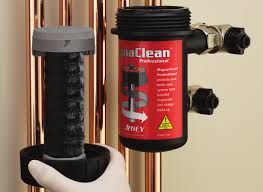
The magnetic filter is fixed to the return water pipe. So that’s the one that takes the water back to the boiler once it’s been around the radiators and central heating system. That then means that any metal particles that have been collected in the water are prevented from entering the boiler itself by the filter.
Even though a magnetic filter is designed to remove the sludge from your system, it’s going to need a helping hand if there’s already lots of rust in your system. That means that a power flush may be needed prior to the magnetic filter being installed.
Cleaning a magnetic filter
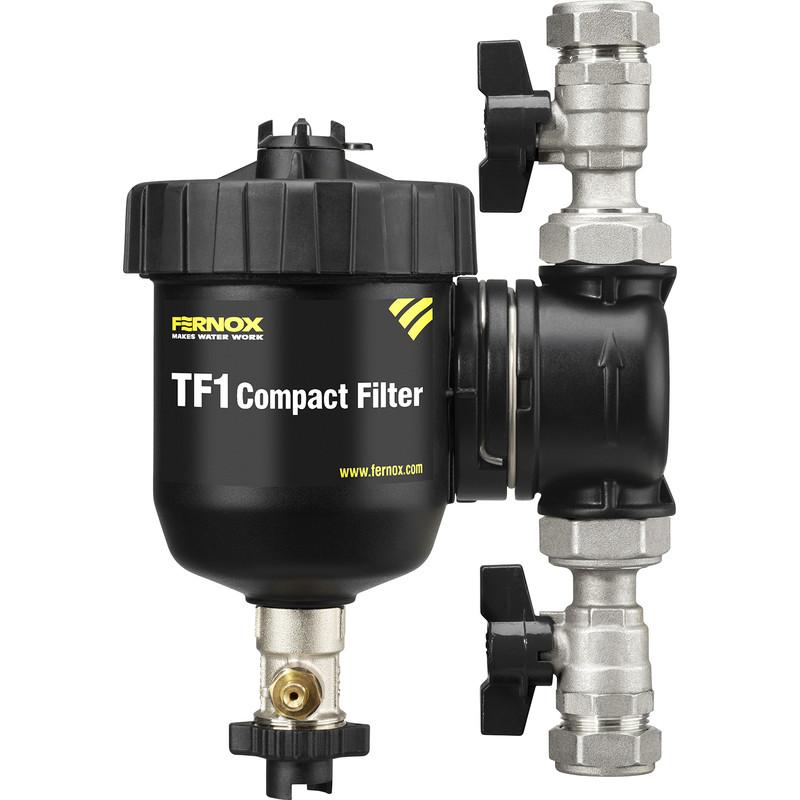
When the magnet picks up dirt from the sludge, the filter becomes blocked. That then stops it from working effectively. This means that you will need to clean the filter each year – but can you do this yourself? Well, the good news is that you can!
While the annual boiler service can only be undertaken by a Gas Safe heating engineer, cleaning the magnetic filter does not require you to work on the inner mechanics of the boiler itself. So that means that you could clean it yourself. You should probably do this in summer too in case anything goes wrong!
It can, though, be a bit of a messy job so many people ask for the cleaning to be completed during the service of their boiler. Also, ask if this will affect the boiler service cost to help you decide if you want it done by the engineer or not. Do remember to let the customer support team know that you need this done so that enough time is allocated to your appointment.
Get the best quotes for boiler installation online in under 1 minute now
New Gas Boilers with FREE Hive Mini Smart Thermostat!
£0 Deposit & 0% Interest Finance available
Step One – Getting prepared to clean the magnetic filter
The first and most important thing to do is to turn off the electricity supply to the boiler and central heating system. Then we recommend putting down dust sheets under the boiler. That’s because it’s possible them some of the rusty water can get into the floor and that can cause staining. Finally, you should ensure that you’ve shut any isolation valves.
Step Two – Getting to the filter
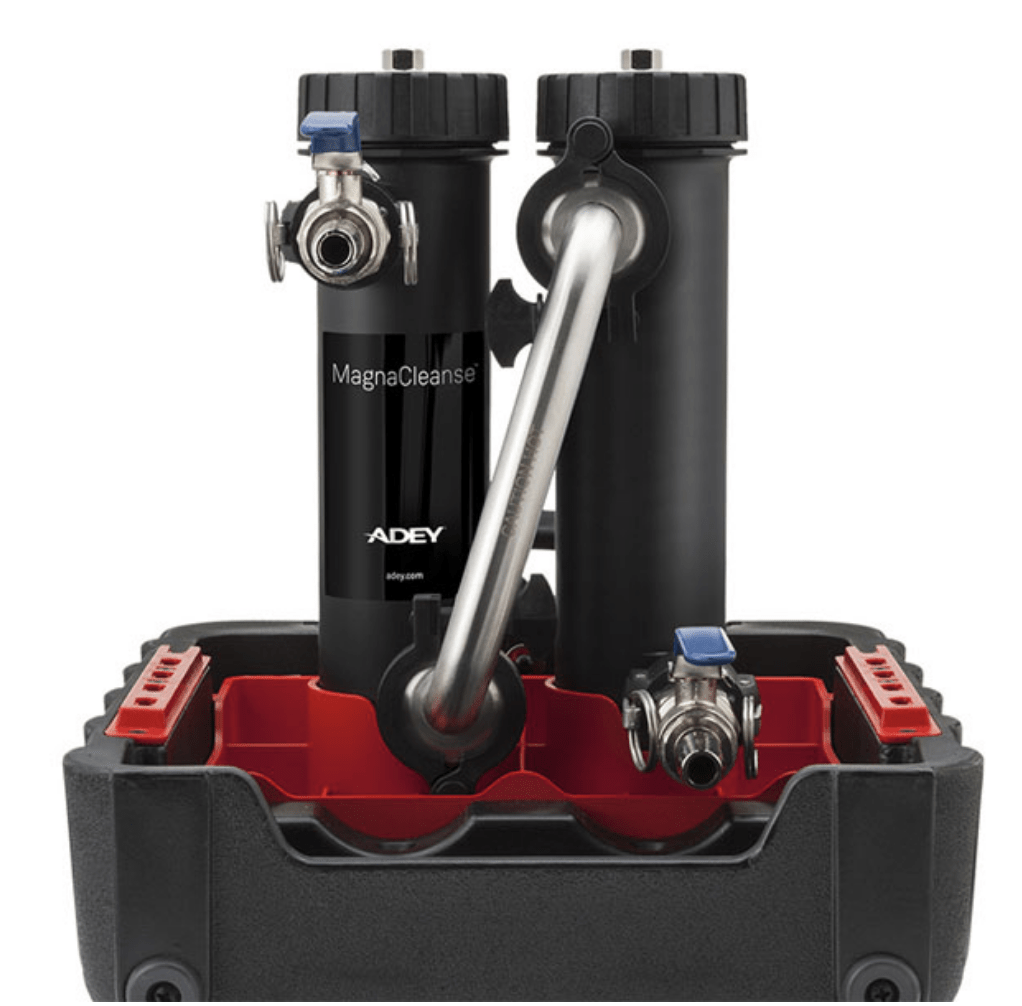
To open the filter lid you should have a spanner that came with the filter. It’s normally a simple screw-type lid, but it’ll be secured down extra tight to keep the system filter from coming undone while operating.
We find it easiest to use the spanner to get things started and then to finish removing the lid by hand. Once you’ve got the lid off, you’ll find the magnet and the filter attached to the lid. You’ll probably now see the amount of dirt and sludge covering the filter.
Now you can slide out the magnet and place it safely to one side. It might need a wipe down, but nothing more than that is normally needed.
Step Three – Cleaning the magnetic filter
Now you’ve got the filter out it’s time to get it cleaned up. The best way we’ve found is to take the filter out to the garden and use a high-pressure hose to stripe away the build-up of rust and sludge.
A standard hose will work but it will take a little longer.
Once everything is sparkling clean and free of rust and dirt then the magnet can be placed back in place and everything replaced back to the filter casing. Don’t forget to tighten the lid by hand and then use the spanner to ensure it’s securely in place.
Now you can reopen the valve and turn the electrics back on to the heating system.
Get the best quotes for boiler installation online in under 1 minute now
New Gas Boilers with FREE Hive Mini Smart Thermostat!
£0 Deposit & 0% Interest Finance available
Is a power flush an alternative to boiler magnetic filters?
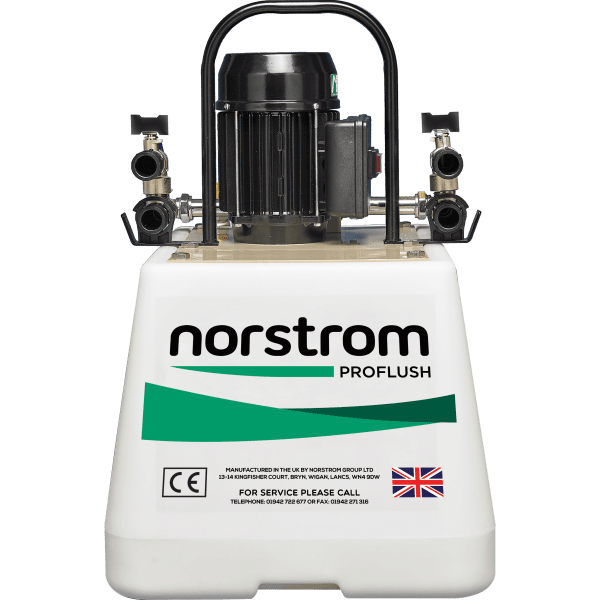
A power flush is taking a ‘sticky plaster’ approach to a problem. That’s because, without a magnetic filter in place, you’ll allow the rust particles and debris from the corrosion to create problems within the heating system. Then you’ll begin to see the issues we mentioned earlier and have to use a power flush to fix the system issue.
The power flushing process definitely has a place in ensuring that the heating system is free of sludge prior to a new gas boiler installation. But, as a way to minimise system problems and keep dirt out, it’s just not a great solution.
Our final thoughts on magnetic filters
When you order a new boiler but don’t get the heating engineer to fit a system filter it’ll be a little cheaper. But, in the long term, your new boiler is experiencing a steady degradation of performance, even the best condensing boilers become less efficient at some point.

A boiler filter such as the Fernox tf1 system makes a huge difference.
At some point, the system will stop heating water because even the best combi boiler isn’t immune to the damaging impact of a build-up of metal debris and sludge. If your boiler is badly damaged by dirt and debris, it might be time to take the plunge and start looking at new boilers.
The new boiler option
We have loads of information to help you make a great choice. From reviews of top manufacturers to Worcester Bosch boiler prices or a new boiler quote, our customer support, installers and advisors are here to assist.
We also offer great deals with boilers on finance & buy now pay later with zero deposit required with our exclusive partners and nationwide boiler installers.
Get the best quotes for boiler installation online in under 1 minute now
New Gas Boilers with FREE Hive Mini Smart Thermostat!
£0 Deposit & 0% Interest Finance available
Written by
Get the best quotes for boiler installation online in under 1 minute now
New Gas Boilers with FREE Hive Mini Smart Thermostat!
£0 Deposit & 0% Interest Finance available
What is in this article?
- Magnetic Filters or Cleaners for Boilers – Are They Worth It?
- How does a magnetic filter work?
- What are the signs of sludge in the heating system?
- Are magnetic filters really needed?
- Does my central heating system need a magnetic filter?
- How is a magnetic filter fitted?
- Cleaning a magnetic filter
- Our final thoughts on magnetic filters





